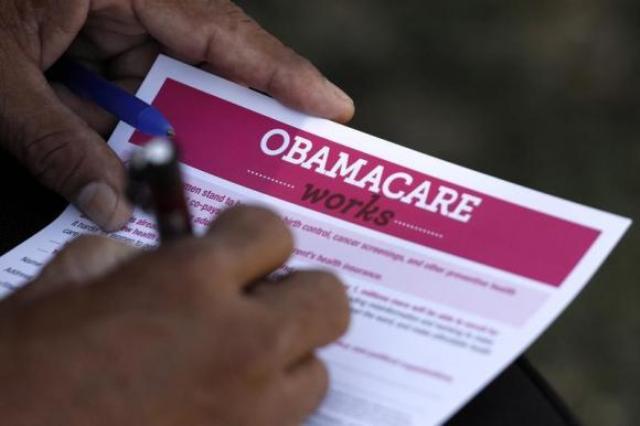-
Tips for becoming a good boxer - November 6, 2020
-
7 expert tips for making your hens night a memorable one - November 6, 2020
-
5 reasons to host your Christmas party on a cruise boat - November 6, 2020
-
What to do when you’re charged with a crime - November 6, 2020
-
Should you get one or multiple dogs? Here’s all you need to know - November 3, 2020
-
A Guide: How to Build Your Very Own Magic Mirror - February 14, 2019
-
Our Top Inspirational Baseball Stars - November 24, 2018
-
Five Tech Tools That Will Help You Turn Your Blog into a Business - November 24, 2018
-
How to Indulge on Vacation without Expanding Your Waist - November 9, 2018
-
5 Strategies for Businesses to Appeal to Today’s Increasingly Mobile-Crazed Customers - November 9, 2018
Health Insurance Deductibles Rising Faster Than Wages
For those employees, deductibles for an individual plan rose from a yearly average of $900 in 2010 to $1,300 this year, the Kaiser analysis found.
Advertisement
Though lower than in previous years, the annual increase surpassed wage growth and overall inflation by a wide margin, and marked the continuation of a trend that has rapidly shifted healthcare costs to workers, the Los Angeles Times reported.
“With deductibles rising so much faster than premiums and wages, it’s no surprise that consumers have not felt the slowdown in health spending”, said Foundation President and CEO Drew Altman in a release.
Deductibles also have become more common for employees, with about 80% of workers now being forced to pay them as part of their health insurance through employers. “It really affects family budgets”.
Since 2005, according to the survey, health insurance premiums have grown an average of 5 percent each year, as compared to 11 percent annually between 1999 and 2005.
Employers’ rising health costs are often singled out as a cause for “stagnant wage growth in recent years, as businesses have put money into health benefits that might otherwise have gone to workers’ paychecks”, the LA Times said.
Deductibles have increased 67% over the past five years and the average deductible amount for single coverage has increased from $917 to $1,318. The new report also shows that premium growth remained “modest” in 2015. Workers in larger firms of more than 200 workers tend to pay much less in deductibles – $1,105 on average – than those in firms of 3 to 199 workers.
“There’s a real risk people won’t get the care they need“, David Lansky, chief executive of the Pacific Business Group on Health, a west coast employer, told the Times.
“It may be tamping down on unnecessary care, but we’re seeing a lot of evidence of skimping on necessary care”, Sara R. Collins, vice president for health care coverage and access at the Commonwealth Fund told The New York Times.
The survey, which also looked at how employers have been preparing for the Affordable Care Act’s excise tax – or “Cadillac tax” as it is sometimes called – on high-cost health plans, which starts in 2018, found that a majority had already started preparations.
Most of the almost 10 million people in marketplace plans qualify for subsidies to offset their premiums, but deductibles in many plans are thousands of dollars.
This tax is one of the key features of Obama’s health care legislation and is aimed at gutting health care for those receiving coverage through their employers, or close to half of the U.S. population.
This year, 57 percent of employers offered health benefits to at least some of their workers, up slightly from the previous year’s 55 percent, according to the report. But those caps don’t apply to all plans; and at $6,600 a year for single coverage ($13,200 for family plans), the caps are too high to make a difference to most people. Deductibles and other cost-sharing don’t count toward the cost, so companies are shifting more of the price of coverage into out-of-pocket payments to avoid the tax.
Advertisement
And her plan aims to protect Americans from unexpected medical bills and help states prevent insurance companies from imposing excessive rate increases. For a family the average premium is $17,545, with workers contributing on average $4,955.





























